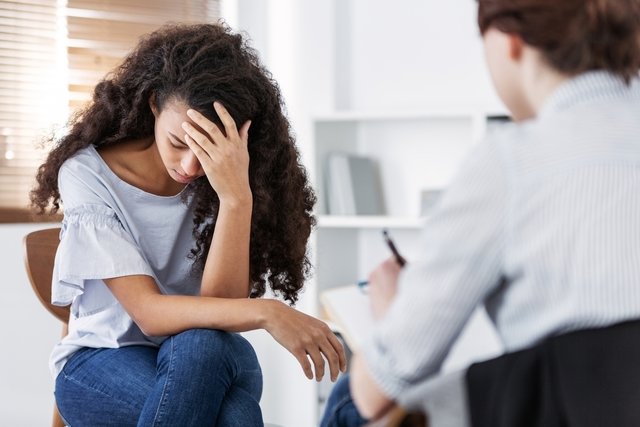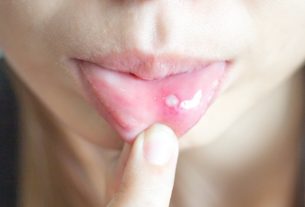Social anxiety is a disorder in which a person has difficulty interacting socially, presenting work in public or eating in front of other people, for example, for fear of being judged, feeling humiliated or other people noticing their weaknesses.
Social anxiety, also known as social phobia, can be quite disabling and interfere with professional performance and social contact, which can lead to the development of other psychological disorders, such as severe depression and agoraphobia, which is the fear of staying in places open, closed or being in a crowd, and the person’s social isolation.
Treatment of social anxiety disorder must be carried out by a psychologist or psychiatrist who may recommend, depending on the degree of the disorder, the use of anxiolytic medications to reduce anxiety symptoms.

Social anxiety symptoms
The main symptoms of social anxiety are:
- Increased heart rate;
- Increased respiratory rate;
- Red face;
- Trembling;
- Voice trembling;
- Muscle tension;
- Nausea;
- Dizziness;
- Excessive sweating.
Symptoms of social anxiety arise when a person feels exposed to situations that require a little more interaction, such as a job interview or presentation, for example.
However, when symptoms appear in various situations, especially when you are around other people, it may be a sign of social anxiety disorder, and the person should seek psychological treatment. Know how to recognize other symptoms of anxiety.
Don’t ignore the signs your body is giving you!
How to identify
Social anxiety disorder can be identified through characteristics presented by the person, such as:
- Difficulty interacting and talking to other people;
- Fear of speaking in public and on the phone;
- Fear of eating in front of others;
- Fear of giving your opinion on a certain subject;
- I’m afraid of walking or working in front of other people.
People with social anxiety are very concerned about other people’s evaluations of them and, normally, avoid speaking or carrying out certain actions for fear of what others will think and fear of feeling humiliated, which hinders their performance at work and in their lives. social relationships. Therefore, they tend to isolate themselves, remaining aloof from different situations.
Possible causes
Social anxiety disorder is more common to appear in early childhood or adolescence, however treatment is only sought when another disorder develops, such as learning difficulties, for example, which can make the treatment of this disorder a bit difficult. more complicated.
This disorder can happen due to low self-esteem, overprotective parents, social rejection, fear of exposure or previous traumatizing experiences. These situations cause the person to lose confidence in themselves and doubt their ability to carry out any task, not seeing their potential and, therefore, being afraid of other people noticing that they are not capable.
How the treatment is carried out
Treatment for social anxiety disorder is mainly done with therapy sessions, with the main techniques being social skills training, systematic desensitization and relaxation training, for example.
The treatment carried out by the psychologist or psychiatrist aims to help the person discover the reason why they cannot interact or act naturally in front of other people and, thus, help them overcome these barriers so that the person does not feel so worried about other people’s possible opinions.
Therapy is also important so that the negative thoughts that normally arise in social anxiety disappear, making the person see things without too many worries, improving their quality of life.
Furthermore, depending on the degree of social anxiety presented by the person, the use of antidepressant medications, such as selective serotonin reuptake inhibitors or monoamine oxidase inhibitors, or beta blockers, may be recommended to reduce anxiety symptoms, especially when symptoms get in the way. the person’s quality of life. See which are the most recommended remedies for anxiety.

Sign up for our newsletter and stay up to date with exclusive news
that can transform your routine!
Warning: Undefined array key "title" in /home/storelat/public_html/wp-content/plugins/link-whisper-premium/templates/frontend/related-posts.php on line 12
Warning: Undefined array key "title_tag" in /home/storelat/public_html/wp-content/plugins/link-whisper-premium/templates/frontend/related-posts.php on line 13




